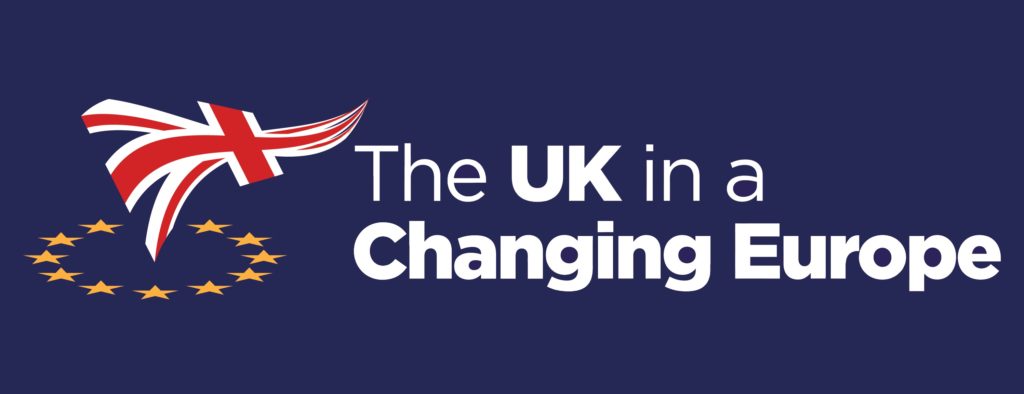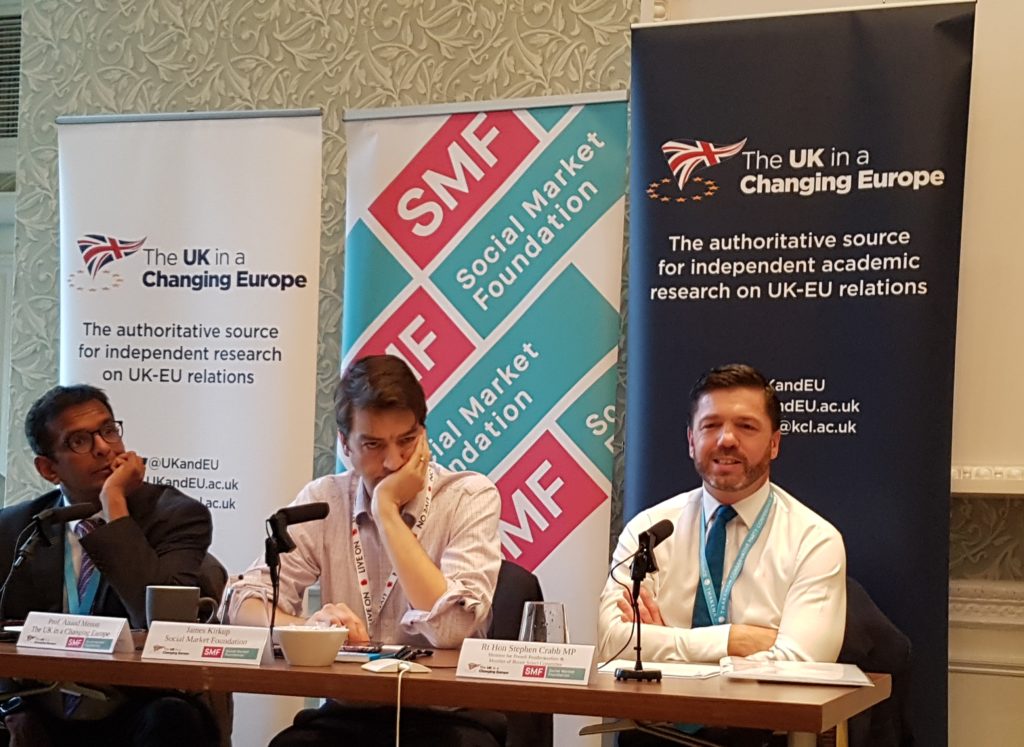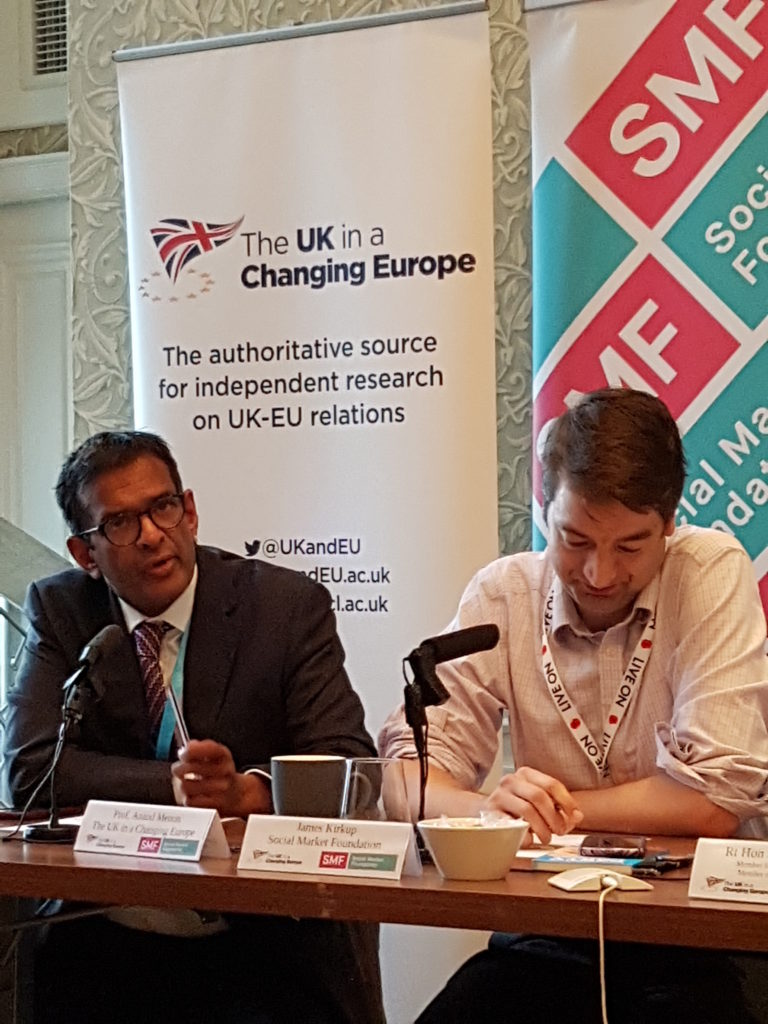
Held in partnership with the UK in a Changing EU.
This event held with the UK in a Changing EU think tank asked a simple question: Does Britain need a deal with the EU before it leaves?
Speakers:
Rt Hon Stephen Crabb MP, Member for Preseli Pembrokeshire and member of Brexit Select Committee
Professor Anand Menon, Director, The UK in a Changing Europe
Chair: James Kirkup, Director, Social Market Foundation
Anand Menon kicked off the event, stating the risks involved in a no deal Brexit make it quite messy and would not be clean. This would include losing access to EU databases the very day after no deal the UK would after.
The promise to “Just get it done” and leave without a deal actually “stores up far messier problems” for Britain in future. A no-deal Brexit will require a far messier negotiation with the EU about a future relationship, stated Menon. If it wants a trade deal, the UK will still have to agree with the EU on issues including the Irish border, EU citizens’ rights-and financial contributions. And once the UK has left and become a “third country” in EU law, any future relationship with the EU will have to ratified under Article 218 of the Lisbon Treaty, which can mean that the deal must be approved by every national parliament in the EU – that’s a recipe for an even longer, and more politically complex negotiation than the one we’ve seen since 2016.
Stephen Crabb MP followed on, stating that “We haven’t been frank with public about destination and what the trade-offs will be.” The lack of clarity around the ultimate destination as problematic. With Brexit being a long, drawn-out process, Crabb called on the need for leadership to spell out say what it’s going to be; and if it’s not full membership, what’s it going to be?

“Politicians at the top still can’t spell out what the relationship with the EU will do, three- and-a-half years later.”
Stephen Crabb MP
James Kirkup posed the question of whether there is in fact a mandate for leaving with no deal. He suggested that too much analysis and commentary on the referendum vote dwells too much on economics and not enough on the non-financial reasons people had for voting to leave. Isn’t it true that some people quite knowingly voted for a Brexit that would make the country poorer (or at least, less rich than it would otherwise have been) in order to achieve political goals like “control”? Aren’t those who now advocate a No Deal exit honouring that instruction more accurately than those who insist on a deal for economic reasons?
Menon replied that to some extent yes, but also noted that there were significant voices in the Leave campaign who promised voters that leaving would not mean any economic cost. He also said that if leaving with a deal means “ramming a Withdrawal Agreement through parliament in three days”, then a delay would be necessary. It would be “dangerous” to approve such a hugely important agreement in such haste just to meet the 31 October deadline.

Crabb said that for most people, Brexit now is about honouring democracy pure and simple, The patriotic and emotive language of the Leave campaign – “Let’s take back control” – was the most powerful bit of the referendum. People want control of their destiny.
The centre-ground has been hollowed out to that extent: if you try and explain that being part of the EU is a decision-making process and not being ruled over, people don’t believe it. The argument for membership has been lost, so Britain must leave.
The very busy event was streamed live on Twitter, if you would like to watch it in full:
